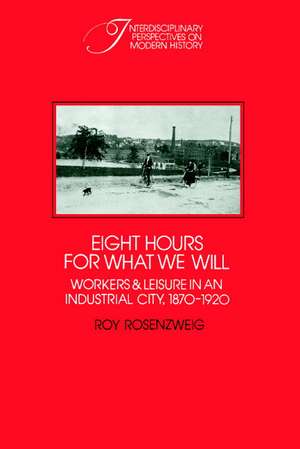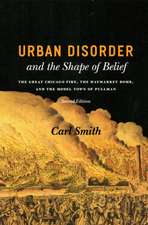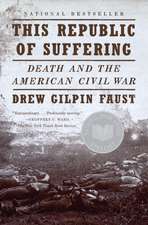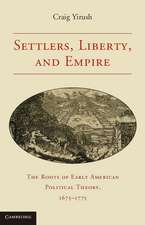Eight Hours for What We Will: Workers and Leisure in an Industrial City, 1870–1920: Interdisciplinary Perspectives on Modern History
Autor Roy Rosenzweigen Limba Engleză Paperback – 30 oct 1985
Din seria Interdisciplinary Perspectives on Modern History
-
 Preț: 149.28 lei
Preț: 149.28 lei -
 Preț: 355.39 lei
Preț: 355.39 lei -
 Preț: 272.36 lei
Preț: 272.36 lei -
 Preț: 312.24 lei
Preț: 312.24 lei -
 Preț: 268.72 lei
Preț: 268.72 lei -
 Preț: 266.98 lei
Preț: 266.98 lei -
 Preț: 270.07 lei
Preț: 270.07 lei -
 Preț: 269.68 lei
Preț: 269.68 lei -
 Preț: 269.09 lei
Preț: 269.09 lei - 5%
 Preț: 253.64 lei
Preț: 253.64 lei -
 Preț: 273.13 lei
Preț: 273.13 lei -
 Preț: 318.01 lei
Preț: 318.01 lei -
 Preț: 314.96 lei
Preț: 314.96 lei -
 Preț: 232.73 lei
Preț: 232.73 lei -
 Preț: 263.32 lei
Preț: 263.32 lei -
 Preț: 395.26 lei
Preț: 395.26 lei -
 Preț: 309.27 lei
Preț: 309.27 lei -
 Preț: 288.62 lei
Preț: 288.62 lei
Preț: 225.41 lei
Nou
Puncte Express: 338
Preț estimativ în valută:
43.14€ • 44.56$ • 35.90£
43.14€ • 44.56$ • 35.90£
Carte disponibilă
Livrare economică 04-18 martie
Preluare comenzi: 021 569.72.76
Specificații
ISBN-13: 9780521313971
ISBN-10: 052131397X
Pagini: 320
Dimensiuni: 134 x 228 x 23 mm
Greutate: 0.48 kg
Ediția:Revised.
Editura: Cambridge University Press
Colecția Cambridge University Press
Seria Interdisciplinary Perspectives on Modern History
Locul publicării:New York, United States
ISBN-10: 052131397X
Pagini: 320
Dimensiuni: 134 x 228 x 23 mm
Greutate: 0.48 kg
Ediția:Revised.
Editura: Cambridge University Press
Colecția Cambridge University Press
Seria Interdisciplinary Perspectives on Modern History
Locul publicării:New York, United States
Cuprins
Acknowledgments; Introduction; Part I. Context: 1. Workers in an industrial city, 1870–1920; Part II. Culture: The Working-Class World of the Late Nineteenth-Century: 2. The rise of the saloon; 3. Immigrant workers and the fourth of july; Part III. Conflict: Struggles Over Working-Class Leisure in the Late Nineteenth and Early Twentieth Centuries: 4. The struggle over the saloon, 1870–1910; 5. The struggle over recreational space: the development of parks and playgrounds; 6. The struggle over the fourth: the safe and sane july fourth movement and the immigrant working class; Part IV. Culture, Conflict, and Change: The Working-Class World of the Early Twentieth Century: 7. The commercialization of leisure: the rise of a leisure market and the persistence of the saloon; 8. From rum shop to Rialto: workers and movies; Conclusion; Abbreviations used in notes; Notes; A note on sources; Index.
Recenzii
'In the proliferating scholarship on American working-class history, leisure has been among the last themes to be taken up. Thus, the appearance of Roy Rosenzweig's book is especially to be welcomed. It is an admirable study on several counts. For one thing, it fully exploits the advantages of local history … His exhaustive research has yielded rich materials, anabling him, for example, to show the changing composition of Worcester's saloonkeepers and to chart the opening history of the city's movie houses … especially impressive is his subtle assessment of the impact of the movies on Worcester's working people.' David Brody, Journal of American History
'Eight Hours For What We Will is a major contribution to modern American working-class history and to the history of a changing American popular and mass culture.' Herbert Gutman, Distinguished Professor of History, City University of New York
'This is conceptually a very innovative and important book.' Thomas A. McMullin, Historical Journal of Massachusetts
'Rosenzweig provides a fascinating study of the interplay of class, ethnicity, and economics in shaping the leisure culture of Worcester's working class.' Mark Aldrich, The Journal of Economic History
'Eight Hours For What We Will is a major contribution to modern American working-class history and to the history of a changing American popular and mass culture.' Herbert Gutman, Distinguished Professor of History, City University of New York
'This is conceptually a very innovative and important book.' Thomas A. McMullin, Historical Journal of Massachusetts
'Rosenzweig provides a fascinating study of the interplay of class, ethnicity, and economics in shaping the leisure culture of Worcester's working class.' Mark Aldrich, The Journal of Economic History










